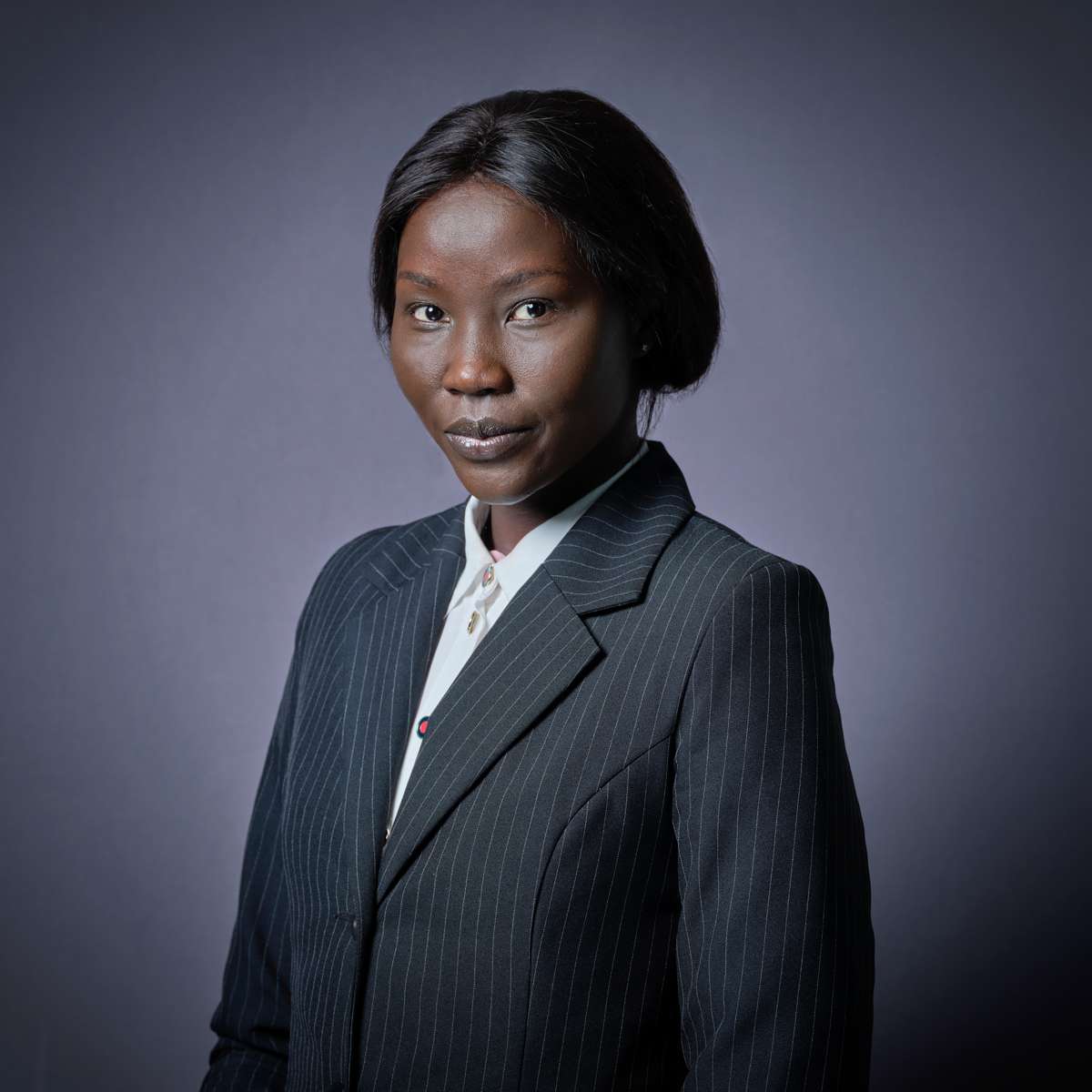Get a solicitor’s help advocating for your and your family’s rights before the DFFH or Children’s Court of Victoria.
Get the Right Outcome for Your Family
Not every accusation of child abuse has merit. Sometimes, reports can be made to the DFFH through mistake or malice – which means you need an empathetic solicitor to advocate for your family’s rights.

DFFH Investigations

Protection Applications

Case Plan Appeals

Children’s Court Matters

FCFCOA Matters

Intervention Orders
What Is the DFFH?
The Department of Families, Fairness and Housing (DFFH) is a state government agency that deals with disability, families and children, concessions and benefits, housing, young people, and emergencies.
If the DFFH believes a child is at risk of abuse or neglect, or if it believes that the child’s parents are unlikely to prevent either from happening, it can request a child protection order from the Children’s Court of Victoria.
If the Children’s Court finds that an order is merited, the DFFH will enforce the order.
Often, this means that a child protection practitioner will speak to your child, visit your home, or even move your child to safer living conditions.
Remember: the Court and the DFFH are not the same thing.
An investigation by the DFFH does not necessarily mean you’ll go to court, although it does mean that you should find a family solicitor to advocate for you.

DFFH Child Protection Orders
The DFFH can apply to the Children’s Court for seven different types of child protection orders.
Learn exactly what each order involves and how it can affect your family.
- Care by Secretary Order
- Family Preservation Order
- Long-term Care Order
- Permanent Care Order
- Temporary Assessment Order
- Interim Accommodation Order
- Family Reunification Order
Care by Secretary Order
When the Court feels your child should be permanently cared for by someone else, it will issue a care by secretary order.
The DFFH will gain parental responsibility for your child and will use the order to find a permanent carer.
Family Preservation Order
If the Court feels your child’s safety and development are at risk, it will issue a family preservation order.
A family preservation order has specific conditions that are enforced by a child protection worker, who will regularly visit you and your child.
Family preservation orders last 12–24 months.
Long-term Care Order
A long-term care order is issued when your child needs ongoing protection.
They’ll be cared for by a long-term carer until they reach 18 years of age.
Although the DFFH will have parental responsibility for your child, your views on their future may still be taken into account.
Permanent Care Order
Under a permanent care order, your child’s carers will become permanent care parents – they will have total parental responsibility for your child until your child turns 18 or marries.
You may be able to have contact with your child, but this will be at the discretion of the Court and the permanent care parents.
Temporary Assessment Order
If the DFFH has tried and failed to fully investigate child protection concerns relating to your child, it can seek a temporary assessment order from the Court.
Under a temporary assessment order, you must comply with the DFFH’s investigation and any related conditions.
Interim Accommodation Order
If the Court feels your child’s safety and wellbeing are at risk, it can make an interim accommodation order, which specifies where your child must live until the next court date.
Interim accommodation orders are enforced by the DFFH and often include conditions relating to school, activities, and medical care.
Family Reunification Order
Under a family reunification order, the DFFH has the power to make day-to-day decisions about your child, such as where they’ll live and what activities they’ll do.
You’ll still have the power to make long-term decisions about your child, such as education and cultural upbringing.
The purpose of the order is to give your child a safe place to live while you resolve the DFFH’s concerns.

Lawyers for Child Protective Services Matters
Being investigated by the DFFH can be emotionally stressful.
You might not understand exactly why you’re being investigated, and, as a parent, feelings like panic, fear, and anxiety are normal.
To make dealing with the DFFH as simple as possible, it’s important to understand your rights and responsibilities in relation to your children.
An experienced family law solicitor can help explain exactly how child protection laws work, as well as advocate on your behalf to the DFFH and in court.
Our Melbourne family law team act as your legal supports, providing empathetic advice that helps you and your family get the outcome that’s right for you.
With lawyers fluent in nine different languages, you’ll be working with a team that understands exactly what you need.
The Process for Fighting a Child Protection Order in Victoria
1. Speak to Your Solicitor
Appealing a child protection order is complex, and you may only have one chance to appeal.
Always speak to an experienced solicitor before attempting an appeal.
2. Analyse Your Matter
Your solicitor will work with you to analyse your matter and find the best avenue for appeal.
3. Request a Review
Your solicitor can help you file a request for a review of a Children’s Court decision within 14 days of the decision being handed down.
4. Appeal to the Supreme Court
Your solicitor can appeal to the Supreme Court against an interim accommodation order or, for other orders, on a question of law.
Child Protection Support Lines
Use these numbers to seek help if you, a loved one, or someone you know is being neglected, is being abused, or is reasonably likely to be abused or neglected.
To make a child safety report:
Your Family Law Team
Penny LaGreca
Partner | Principal Solicitor
Penny is a leading family law solicitor admitted in the Supreme Court of Victoria.
She has a broad range of expertise across multiple practice areas like family law, Wills and estate planning, and personal injuries, and is currently completing a Masters of Family Law.

Veronica Toth
Senior Solicitor
Veronica is a family law solicitor with extensive experience in mediation, separation litigation, child protection, and intervention orders.
Veronica has worked in both the private and community sectors, giving her the knowledge needed to successfully handle highly complex, diverse matters.

Durra Baraz
Senior Solicitor
A mother of three, Durra Baraz is a highly experienced family law solicitor with a background in HR.
She speaks fluent Arabic and often represents clients who aren’t native English speakers.

Ariane Ang
Solicitor
Ariane Ang combines experience in criminal and commercial matters with a focus on family law.
She primarily practices in matters involving property division, parenting arrangements, and intervention orders.

Teraseth James
Solicitor
Teraseth James is a family law solicitor who focuses on achieving swift, equitable outcomes.
She understands that family violence matters are incredibly emotional, and takes a practical, cost-effective approach to resolving disputes.

Child Protection Resources
If your child is at risk of being taken away from you, contact a family lawyer as soon as possible. In the meantime, use these resources to learn about the rights of you and your loved ones.
If you or another person is in immediate danger, call triple zero (000) now.

Navigating the Complexities of Family Law: Expert Guidance from Dandenong Solicitors
Child Protection FAQs
Is the DHHS the same thing as the DFFH?
The Department of Health and Human Services (DHHS) was a state government department responsible for health, housing, families, and other social considerations. As of 1 February 2021, the DHHS has separated into two new divisions: the Department of Health (DH) and the Department of Families, Fairness and Housing (DFFH).
The DFFH is not exactly the same as the DHHS, but does take on regulation of disability, families and children, concessions and benefits, housing, young people, and emergencies.
What types of cases are heard by the family division of the Children’s Court of Victoria?
A child can’t make decisions about who they see or who they live with until they are 18. They can, however, report abuse and neglect to the DFFH or the police, which may result in their temporary or permanent removal from their parents’ household.
They can also apply to the Children’s Court of Victoria to indicate that there are substantive and irreconcilable differences between them and their caregiver, which may result in a child protection order.
During custody disputes, the Court has the final say in relation to parenting arrangements, but a child can express their wishes, which the Court may or may not take into consideration.
What types of cases are heard by the family division of the Children’s Court of Victoria?
The Children’s Court of Victoria is designed to hear matters relating to people under 18 years of age. This includes criminal cases relating to children, child protection orders, and intervention orders.
What are the criteria for child protection orders?
The Children’s Court of Victoria can make a child protection order when:
- a child needs protection; or
- there is a substantial and irreconcilable difference between the child and the person who has parental responsibility for the child.
What is child neglect?
Child neglect is a form of child abuse. Although neglect does include a failure to provide adequate supervision, medical care, food, clothing, and shelter, it can also involve a lack of emotional support. In short, child neglect occurs when someone fails to adequately support their child’s development and wellbeing.
There are six main types of child neglect:
- Supervisory neglect (being absent or not paying due attention to your child)
- Physical neglect (failing to provide appropriate food, clothing or shelter)
- Medical neglect (failing to provide appropriate medical care)
- Educational neglect (failing to provide or facilitate an education)
- Abandonment (leaving your child alone for an unreasonable amount of time with appropriate care)
- Emotional neglect (failing to provide adequate nurturement, affection, encouragement and emotional support)
Child neglect is different from other types of abuse, like physical or sexual abuse, because there is no specific act involved. It takes place over a period of time when parents fail to fulfil their parental responsibilities.
You can learn more about child neglect here.




